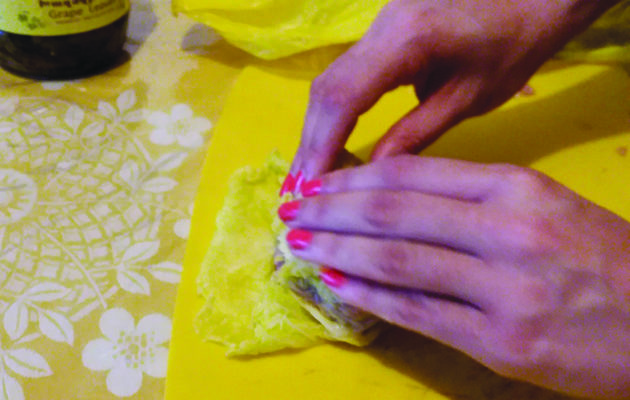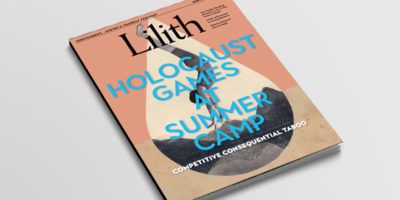Subversion, Sex, Savoy Cabbage
 “Can I cook with you?”
“Can I cook with you?”
“Repeat what you said.” Blatant surprise lingered in my mother’s voice. That was to be expected.
I was having guests over for Shabbat dinner — Ashkenazic millennials who, after decades of munching on potato kugel, craved to challenge their palates with Eastern saffron and sumac.
But my friends didn’t quite comprehend how Azeri Jewish cuisine signifies a weighty inner conflict, and why I often resist cooking it. While I was growing up, I felt uncomfortable about how my budding feminist consciousness was pushing away the true hallmark of the Azeri Jewish woman: glorious domesticity.
When my grandmother visited from Kuba, Azerbaijan, and watched as I carried a glass (without any handles!) of steaming tea for my grandfather, she punished me with a frigid gaze. Apparently, I carried it like an awkward chimp instead of like a perfectly postured duchter chuna (roughly translated as “daughter of the home” in Juhuri, the Azeri Jewish language of my ancestors).
I wasn’t the granddaughter she’d traveled 6,000 miles for. I was the spoiled American one: eager to eat, but not eager to cook. My identity as an Azeri Jewish woman was half-baked, and every female relative I came across giggled nervously at my domestic ineptitudes.
But in spite of the insecurity that clawed at me every time I fumbled with pots and pans, I was excited to cook the savory stews of the Caucasus Mountains for my otherwise cholent-chomping friends. My mother, still surprised that I chose to venture into the kitchen, agreed to guide me through the daunting steps of soaking, dicing, boiling, and delicately folding cabbage leaves around meat.
I walked into my parents’ house on a humid July afternoon, wearing a short-sleeved shirt and shorts. The first things I encountered were my mother’s tight-pressed lips and disappointed dark eyes.
“Oy, Riiiivkaaa!” my mother cried. Each syllable in my Hebrew name was smothered in sadness. “How can you be wearing those shorts? Respect yourself. You need to uphold the family name in our community.”
I tiredly walked up to my childhood bedroom, rested my head on the air conditioner, and thought of how unconscious misogyny was always in hot pursuit of my mother, from her days as a chaste teenager in the village square of Kuba to her days as a toiling grandmother on the hipster-laden streets of Brooklyn. And then, as I lifted my head from the air conditioner, I felt the familiar chill of delicious epiphany: I can take my innate sensuality (the same sensuality apparent in my exposed, oh-so-very-whorish thighs) and use it to connect to the culture’s food.
Subversion! Sex! Savoy cabbage! This mantra is now my meditative ritual as I cook.



